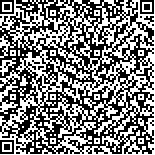|
| 引用本文: | 许家辉,陈世雄,俞兴发,葛亚明,刘俊稚,周超.投喂海水小球藻和三角褐指藻对泥蚶成贝镉排出的影响.海洋与湖沼,2018,49(3):624-629. |
| |
|
| |
|
|
| 本文已被:浏览 2017次 下载 1578次 |

码上扫一扫! |
|
|
| 投喂海水小球藻和三角褐指藻对泥蚶成贝镉排出的影响 |
|
许家辉1, 陈世雄1, 俞兴发1, 葛亚明2, 刘俊稚1, 周超1
|
|
1.浙江海洋大学海洋科学与技术学院 舟山 316022;2.浙江海洋大学创新应用研究院 舟山 316022
|
|
| 摘要: |
| 通过监测泥蚶不同组织器官镉含量的变化及构建相应泥蚶镉排出动力学模型,研究了投喂两种饵料微藻——海水小球藻(Chlorella salina)和三角褐指藻(Phaeodactylum tricornutum)对泥蚶(Tegillarca granosa)成贝镉排出的影响。结果表明:投喂饵料微藻对泥蚶外套膜、鳃、内脏团和肌肉的镉排出均有明显促进作用(P<0.05),且投喂混合藻种的效果优于投喂单一藻种。经10d暂养净化后,泥蚶不同组织器官的镉排出率大小依次为内脏团>鳃>外套膜>肌肉,其中投喂混合藻时可食用部分(即肌肉部分)的镉排出率和动力学模型拟合得到的排出速率均比不投喂饵料微藻的对照高出1倍左右[30.02% vs16.13%;0.036μg/(g·d) vs0.017μg/(g·d)];同时,通过上述动力学模型还可算得,投喂饵料微藻的泥蚶体内镉的生物半衰期可比对照组缩短14—22d,其食用部分预期达标时间可缩短12—13d。 |
| 关键词: 饵料微藻 泥蚶 组织器官 镉排出 动力学模型 |
| DOI:10.11693/hyhz20170800205 |
| 分类号:X55;Q148 |
| 基金项目:浙江省自然科学基金项目,LQ17C030001号;浙江海洋大学海洋科学浙江省重中之重学科开放项目,20140205号。 |
| 附件 |
|
| EFFECTS OF FEEDING CHLORELLA SALINA AND PHAEODACTYLUM TRICORNUTUM ON CADMIUM DEPURATION FROM ADULT CLAM TEGILLARCA GRANOSA |
|
XU Jia-Hui1, CHEN Shi-Xiong1, YU Xing-Fa1, GE Ya-Ming2, LIU Jun-Zhi1, ZHOU Chao1
|
|
1.College of Marine Science and Technology, Zhejiang Ocean University, Zhoushan 316022, China;2.Innovation and Application Institute, Zhejiang Ocean University, Zhoushan 316022, China
|
| Abstract: |
| By monitoring cadmium content in different tissues of clam Tegillarca granosa and constructing corresponding kinetic model of cadmium depuration, the effects of feeding two species of microalgae——Chlorella salina and Phaeodactylum tricornutum on cadmium depuration from adult T. granosa was studied. The results show that both the bait microalgae promoted significantly the cadmium depuration in all tissues of T. granosa (P<0.05), and the feeding of the two microalgae mixture performed even better. In our 10-day experiment, the cadmium depuration efficiency in different tissues was in the order of viscera > gill > mantle > muscle. Specifically, in the muscle, the edible tissue, both cadmium depuration efficiency and rate of the mixture feeding scheme are about one fold higher than the control[30.02% vs 16.13%; 0.036 μg/(g·d) vs 0.017 μg/(g·d)]. Moreover, according to the constructed kinetic functions of cadmium depuration, by feeding the bait microalgae, the biological half-life (B1/2) of cadmium in all tested tissues could be shortened by 14-22 days, while the expected time for cadmium content in muscle to meet the corresponding national standards would be shortened by 12-13 days. Therefore, this study provided a technical way for heavy metal depuration from living shellfish in terms of food safety, and scientific instructions to bait microalgae selection in shellfish culture in pollution ecology. |
| Key words: microalgal diet Tegillarca granosa tissues cadmium depuration kinetic model |
|
|
|
|
|
